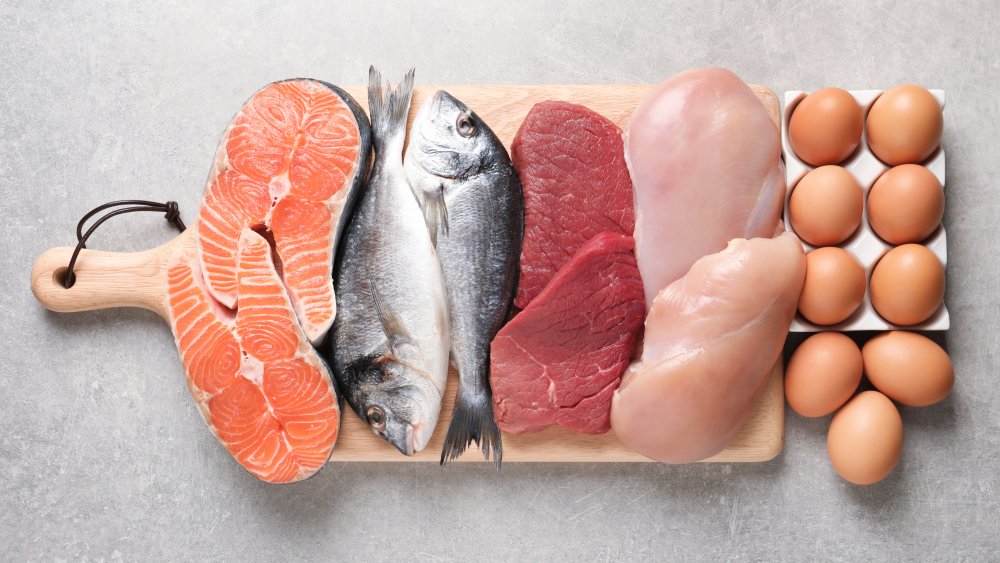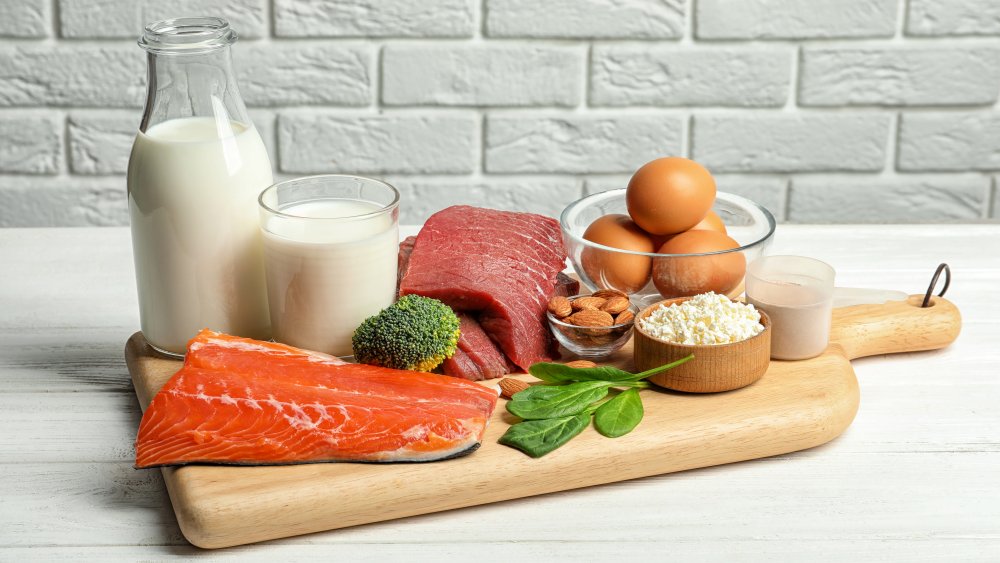When You Eat Too Much Protein, This Is What Happens
Protein is everywhere these days. In addition to what we take in through diet, it's in supplements, powders, and even water. But can you get too much protein? And if you do, what is the effect on your body?
High-protein diets like Atkins, the Zone, and the keto diet have gained popularity in recent decades. They purport to reduce weight by depleting the body's supply of carbohydrates so it then has to burn fat for energy. Protein takes longer to digest, according to Women's Health, so you feel full longer. It also requires more energy to metabolize than other macronutrients like carbs and fat, so your body burns more calories while digesting.
But our bodies don't need an excessive amount of protein to function, and it can even have some negative side effects. The recommended daily allowance of protein is 0.8 grams per kilogram of body weight, according to Shape. For a 150-pound individual, that equates to 54 grams of protein a day (use a protein calculator to find out your body's needs).
Some negative effects can happen if you eat too much protein
If you overconsume protein, you can expect some effects you might not like, particularly if you are cutting back on carbs. That can put your body in a ketogenic state, which is when it burns stored fat for energy. Ketosis can cause bad breath, as well as constipation, according to Healthline. On the other hand, too much protein from dairy can lead to diarrhea.
Excessive protein will also lead to too much nitrogen in the body as you break down amino acids found in protein sources. Dehydration can be the result, as the body uses water to excrete excess nitrogen. And in people with existing kidney disease, further damage can happen.
To successfully manage a high-protein diet, choose lean meats that are low in fat, according to WebMD. That will lower your risk of heart disease from high-fat foods. Fish, dairy, eggs, and soy are also good options for whole food options. But don't neglect vegetables — and only cut out fruit, as many high-protein diets dictate, on a temporary basis.
A high-protein diet can be a good way to lose or manage weight but, like all healthy eating choices, it's best done with balance.


